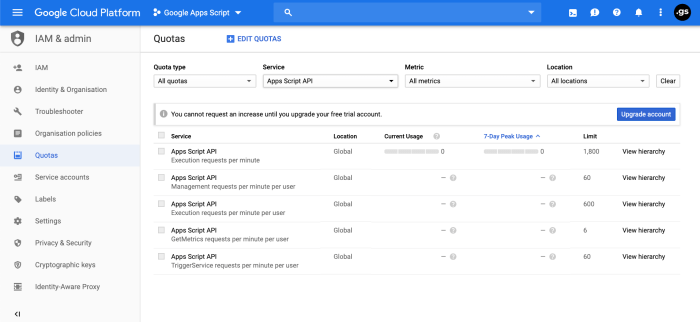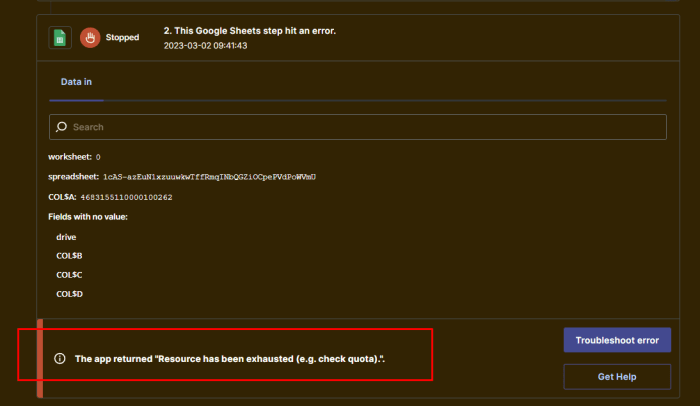MBA application strategy for non-traditional candidates takes center stage, a journey often fraught with unique challenges and opportunities. This guide will equip aspiring business leaders with the knowledge and strategies needed to navigate the complex landscape of MBA admissions, showcasing their distinctive strengths and career aspirations.
Whether you’ve built a successful career in a non-traditional field, taken a different path after college, or are returning to academia after a significant break, the MBA application process presents a chance to demonstrate your value and potential to top business schools.
This guide will delve into the key elements of a successful application, including crafting a compelling narrative, showcasing academic proficiency, building a strong network, leveraging extracurricular activities, and mastering the interview process.
Understanding the MBA Application Landscape for Non-Traditional Candidates: MBA Application Strategy For Non-traditional Candidates
The MBA application process for non-traditional candidates presents both unique challenges and exciting opportunities. While traditional applicants often come directly from undergraduate programs, non-traditional candidates bring a wealth of diverse experiences, making them attractive to top business schools.
Defining Non-Traditional Candidates
Non-traditional MBA applicants often have a non-linear career path, meaning they may have taken a break from their education, changed industries, or pursued non-traditional roles. They may also be older than the average applicant, have significant work experience, or have pursued alternative educational paths.
These individuals offer a distinct perspective and valuable insights that can enrich the learning environment for their peers.
Challenges Faced by Non-Traditional Candidates
Non-traditional candidates may face unique challenges during the MBA application process. They may need to demonstrate the relevance of their experiences to a business school curriculum. Some may also need to overcome concerns about their academic performance, particularly if they have been out of school for a while.
Opportunities for Non-Traditional Candidates
Despite the challenges, non-traditional candidates have significant opportunities. Their diverse backgrounds and experiences are highly valued by top MBA programs. They can leverage their professional achievements, unique perspectives, and leadership skills to stand out from the competition.
Top MBA Programs’ Perspective on Non-Traditional Candidates
Top MBA programs recognize the value of diversity and seek to create a learning environment that benefits from a wide range of perspectives. They are increasingly open to non-traditional candidates, particularly those who can demonstrate strong leadership potential, a clear career goal, and a commitment to contributing to the program.
Crafting a Compelling MBA Application Story

Your MBA application story is your chance to showcase your unique journey and why you’re the perfect candidate for the program. This story should highlight your career progression, impact, skills, and aspirations, effectively communicating your potential for success in the program and beyond.
Showcasing Career Progression and Impact
A strong application story effectively demonstrates your career growth and the impact you’ve made in your field. This includes highlighting your accomplishments, responsibilities, and the value you’ve brought to your employers. You should be able to clearly articulate the progression of your career, emphasizing how each role built upon the previous one, leading to your current position and aspirations.
Identifying Key Skills and Experiences
MBA programs seek candidates with specific skills and experiences that align with their curriculum and program goals. It’s crucial to identify the key skills and experiences that are relevant to the specific MBA program you’re applying to. This might include analytical skills, problem-solving abilities, leadership qualities, teamwork experience, communication skills, and global awareness.
Demonstrating Leadership and Problem-Solving Abilities
MBA programs value leadership and problem-solving skills. Your application story should highlight instances where you demonstrated leadership, took initiative, and successfully solved complex problems. This could involve leading a team, spearheading a project, or finding creative solutions to challenges.
Designing a Personal Statement That Highlights Unique Strengths and Career Goals
The personal statement is your opportunity to tell your story in your own voice. It should be a compelling and concise narrative that showcases your unique strengths, experiences, and career goals. You should articulate your motivations for pursuing an MBA, how the program aligns with your aspirations, and how you will contribute to the program and the broader community.
Use specific examples and anecdotes to bring your story to life and demonstrate your passion and commitment.
Demonstrating Academic Proficiency
For non-traditional MBA applicants, demonstrating academic proficiency can be a significant challenge. While work experience and leadership skills are valuable, a strong academic foundation is still essential. This section will delve into strategies for tackling the GMAT/GRE and overcoming academic gaps or weaknesses.
Approaching GMAT/GRE Preparation, MBA application strategy for non-traditional candidates
GMAT/GRE preparation is crucial for non-traditional applicants. Here are some strategies to consider:* Early Start:Begin preparing early, ideally several months before the application deadline. This allows ample time for studying and taking practice tests.
Targeted Study
Identify your strengths and weaknesses and focus your preparation on areas where you need improvement. Utilize online resources, study guides, and practice tests to target specific sections.
Practice Regularly
Consistent practice is essential for familiarizing yourself with the exam format and building confidence. Aim for regular study sessions and take practice tests under timed conditions.
Seek Professional Guidance
Consider working with a GMAT/GRE tutor or enrolling in a test preparation course. These resources provide expert guidance, personalized feedback, and valuable strategies.
Overcoming Academic Gaps or Weaknesses
Non-traditional applicants may have academic gaps or weaknesses due to years away from formal education. Here are some strategies for addressing these challenges:* Highlight Relevant Experience:Emphasize how your work experience, leadership roles, and professional development have strengthened your analytical and problem-solving skills, which are essential for MBA success.
Showcase Continuous Learning
Demonstrate your commitment to lifelong learning by highlighting any courses, workshops, or certifications you’ve pursued since your last formal education.
Choose a Program That Aligns With Your Strengths
Select an MBA program that aligns with your career goals and leverages your existing skills and knowledge. This can help mitigate any perceived academic weaknesses.
Seek Academic Support
Many MBA programs offer academic support services, such as tutoring, workshops, and writing centers. Utilize these resources to address any academic gaps or weaknesses.
Examples of Successful Academic Transcripts and Test Scores
While there’s no single formula for success, here are examples of how non-traditional applicants have demonstrated academic proficiency:* Strong GPA with a Relevant Degree:A non-traditional applicant with a 3.5 GPA in a field like engineering or finance can showcase their academic aptitude and strong foundation.
High GMAT/GRE Score
A score in the 700+ range on the GMAT or 320+ on the GRE demonstrates strong analytical and quantitative skills, even if the applicant’s undergraduate GPA is lower.
Upward Trend in Academic Performance
If an applicant’s GPA improved over time, it can demonstrate a commitment to learning and a growing understanding of academic concepts.
Strong Letters of Recommendation
Letters of recommendation from academic advisors or professors can provide insights into an applicant’s academic potential and work ethic.
Building a Strong Network and References
The strength of your MBA application hinges not only on your academic achievements and professional experiences but also on the quality of your network and the references you secure. These elements provide crucial insights into your character, potential, and suitability for the program.
Identifying Key Individuals for References
Identifying individuals who can provide strong recommendations is essential for showcasing your capabilities and potential to the admissions committee. You should seek individuals who have witnessed your skills and accomplishments firsthand, and who can offer insightful and specific examples to support their assessments.
- Direct Supervisors:These individuals have observed your work ethic, problem-solving abilities, and leadership potential in a professional setting. They can provide valuable insights into your contributions to the team and your ability to handle complex challenges.
- Professors:If you have taken any graduate-level courses or participated in research projects, your professors can offer insights into your academic abilities, intellectual curiosity, and research potential. They can speak to your critical thinking skills, analytical prowess, and ability to engage in scholarly discourse.
- Mentors or Advisors:Individuals who have provided you with guidance and support in your professional or personal development can offer valuable perspectives on your character, work ethic, and commitment to growth. They can highlight your resilience, adaptability, and ability to learn from experience.
- Peers or Colleagues:Individuals who have worked closely with you on projects or initiatives can provide a different perspective on your strengths and contributions. They can speak to your teamwork skills, communication abilities, and ability to collaborate effectively.
Cultivating Meaningful Relationships with Mentors and Advisors
Cultivating meaningful relationships with mentors and advisors is crucial for receiving valuable guidance, support, and recommendations. Building a strong rapport with these individuals requires active engagement, open communication, and a genuine desire to learn and grow.
- Seek Out Mentors:Identify individuals in your field or areas of interest who have achieved success and whose values align with your own. Approach them with a genuine interest in learning from their experiences and seeking their guidance.
- Maintain Consistent Communication:Stay in touch with your mentors and advisors, even if it’s just a brief email or phone call to update them on your progress or seek their advice. Regular communication demonstrates your commitment to the relationship and your desire to learn from their expertise.
- Show Appreciation:Express your gratitude for their time, support, and guidance. Acknowledge their contributions to your development and demonstrate your appreciation for their mentorship.
- Seek Feedback:Actively seek feedback from your mentors and advisors, both positive and constructive. Use their insights to identify areas for improvement and refine your skills and knowledge.
Leveraging Extracurricular Activities and Community Involvement

Admissions committees often look for candidates who demonstrate a commitment to making a positive impact beyond their professional lives. Extracurricular activities and community involvement provide valuable opportunities to showcase your leadership, teamwork, and passion. By strategically highlighting these experiences in your MBA application, you can strengthen your candidacy and differentiate yourself from other applicants.
Demonstrating Leadership and Teamwork
Extracurricular activities can serve as a platform to demonstrate your leadership and teamwork skills. Here are some examples:
- Leading a student organization:Take on a leadership role in a student club or organization, such as president, treasurer, or event coordinator. This experience allows you to showcase your ability to motivate and inspire others, manage budgets, and organize successful events.
- Participating in sports teams:Joining a sports team demonstrates your commitment, dedication, and ability to work collaboratively towards a common goal. Leadership roles, such as team captain or coach, provide further evidence of your leadership capabilities.
- Volunteering in a leadership capacity:Taking on a leadership role in a volunteer organization, such as a board member or project lead, allows you to demonstrate your ability to manage teams, delegate tasks, and achieve results in a non-profit setting.
Showcasing Volunteer Work and Community Engagement
Volunteer work and community engagement demonstrate your commitment to making a difference in the world. Here are some strategies for showcasing your volunteer experience:
- Quantify your impact:Provide specific details about the number of people you helped, the projects you completed, or the positive outcomes you achieved. For example, instead of simply stating “I volunteered at a local soup kitchen,” describe the specific tasks you performed, such as serving meals to 50 people each week or organizing a food drive that collected 1000 pounds of food.
- Highlight your skills and experiences:Connect your volunteer work to the skills and experiences that are relevant to your MBA goals. For example, if you are applying to an MBA program in healthcare management, you could highlight your volunteer work at a local hospital or clinic.
- Explain your motivation:Share your personal reasons for engaging in volunteer work. This can help admissions committees understand your values and commitment to making a positive impact.
Highlighting Personal Passions and Interests
Extracurricular activities and community involvement are often extensions of your personal passions and interests. Highlighting these passions can add depth and personality to your application.
- Connect your passions to your MBA goals:Explain how your passions and interests relate to your career aspirations. For example, if you are passionate about environmental sustainability, you could highlight your volunteer work with an environmental organization and explain how this experience has inspired you to pursue an MBA in sustainable business.
- Use creative mediums:Don’t be afraid to get creative in showcasing your passions. You could create a blog, start a podcast, or write an article about your interests. This can demonstrate your creativity and communication skills.
- Share personal stories:Use your personal statement or essays to share stories about your passions and how they have shaped your life. This can help admissions committees connect with you on a personal level.
Navigating the Interview Process
The MBA interview is a crucial step in the application process, where you have the opportunity to showcase your qualifications and personality directly to the admissions committee. For non-traditional candidates, this process can be particularly demanding as you need to effectively bridge the gap between your unique experience and the expectations of the program.
Identifying Common Interview Questions
Non-traditional candidates often face questions that explore their career transitions, motivations for pursuing an MBA, and how their experiences will contribute to the program’s diverse learning environment. Here are some common interview questions:
- Tell me about your career path and why you decided to pursue an MBA.
- How will your non-traditional background benefit the MBA program and your classmates?
- What are your short-term and long-term career goals, and how will an MBA help you achieve them?
- Describe a time when you faced a significant challenge in your career. How did you overcome it, and what did you learn from the experience?
- Why are you interested in this specific MBA program, and what makes it the right fit for you?
Effectively Communicating Career Aspirations and Goals
Articulating your career aspirations and goals is essential for demonstrating your clarity of purpose and alignment with the MBA program.
- Research the program and its alumni network: Identify successful alumni with similar backgrounds and career aspirations. Use their experiences as examples to illustrate your own goals and potential career trajectory.
- Connect your past experiences to your future aspirations: Highlight how your unique skills and experiences from your non-traditional career path will translate into success in your desired field.
- Demonstrate a clear understanding of the program’s curriculum and its relevance to your goals: Show that you’ve researched the program thoroughly and understand how it will help you develop the necessary skills and knowledge to achieve your aspirations.
- Be specific and measurable: Instead of saying “I want to be a successful entrepreneur,” provide specific goals like “I want to launch a tech startup in the healthcare industry within the next five years.”
Showcasing Personality and Making a Lasting Impression
Beyond your qualifications, your personality and communication style play a significant role in leaving a positive impression.
- Be authentic and genuine: Don’t try to be someone you’re not. Let your personality shine through and be comfortable expressing your unique perspective.
- Engage in active listening: Pay close attention to the interviewer’s questions and respond thoughtfully. Demonstrate that you’re genuinely interested in the program and the conversation.
- Ask insightful questions: Prepare a few thoughtful questions about the program, faculty, or student life. This demonstrates your engagement and interest in the program.
- Practice your communication skills: Prepare for the interview by practicing answering common questions and rehearsing your responses aloud. This will help you feel more confident and articulate during the actual interview.
- Maintain a positive attitude: Even if you encounter challenging questions, maintain a positive and enthusiastic demeanor. This shows your resilience and ability to handle pressure.
Wrap-Up

The path to an MBA for non-traditional candidates is unique, demanding a thoughtful approach that highlights your distinctive experiences and career aspirations. By understanding the specific challenges and opportunities, crafting a compelling story, demonstrating academic proficiency, building a strong network, and leveraging extracurricular activities, you can create an application that resonates with admissions committees and opens doors to your dream business school.
Questions and Answers
What are some common examples of non-traditional MBA applicants?
Non-traditional applicants often include those with extensive work experience in non-business fields, individuals who have taken a career break, military veterans, entrepreneurs, and those who have pursued alternative educational paths.
How can I address academic gaps or weaknesses in my application?
Highlight your professional achievements and demonstrate your commitment to lifelong learning. Consider taking relevant coursework or professional development programs to strengthen your academic profile.
What are some key interview questions for non-traditional candidates?
Expect questions about your career path, motivations for pursuing an MBA, and how you’ll contribute to the business school community. Be prepared to discuss your leadership experiences, problem-solving skills, and how your unique background will enrich the classroom environment.
